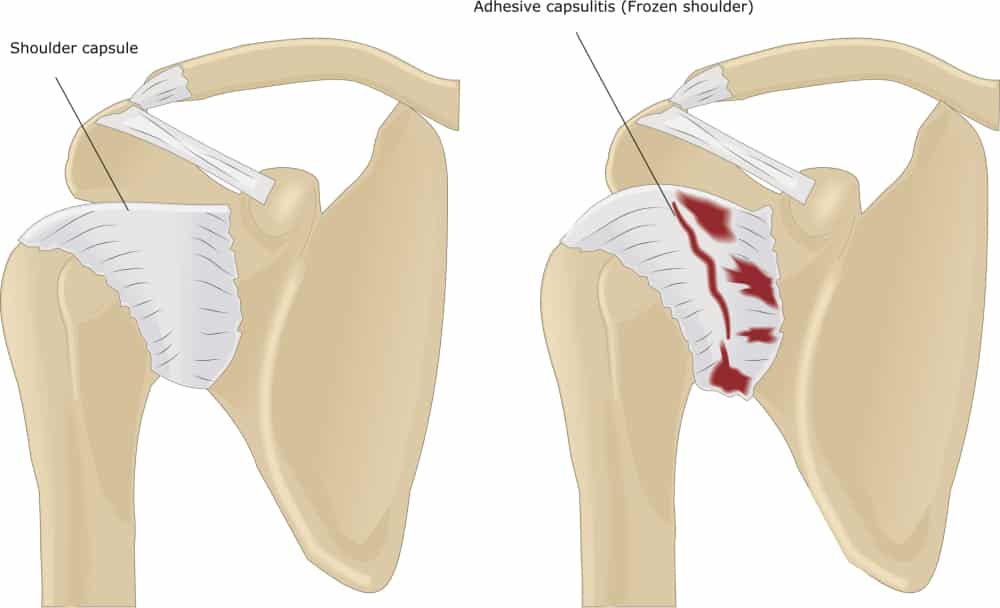Did you know your shoulder could freeze? Not because of falling temperatures but because of thickening and tightening of the capsule surrounding your glenohumeral joint. In this third installation in our Shoulder Series, we'll explore the symptoms, causes, and treatment options for frozen shoulder.
Overview
Frozen shoulder, or adhesive capsulitis, characterized by pain and extreme stiffness in the shoulder that typically develops slowly and worsens over time. It occurs in 2% to 5% of the general population and typically affects women more than men. The explicit cause of adhesive capsulitis is not yet fully understood, but it typically occurs after trauma (fall, surgery), due to immobilization after a medical procedure, an episode of extreme overuse (painting a ceiling) or due to an autoimmune issue. Often, though, there is no known cause or trigger for the onset of frozen shoulder.
Symptoms
There are four stages that typically define adhesive capsulitis.
1. Pre-freezing: 1-3 months of symptoms
- Pain with active and passive motion
- Aching at rest
- Pain might be sharp with movement
- Only slight restriction in motion
- Pain during the day and at night
2. Freezing: 3-9 months of symptoms
- Progressive loss of motion
- Increased pain
- Potentially intense pain at night
- Difficulty completing daily activities with affected arm
3. Frozen: 9-14 months of symptoms
- Considerable loss of motion
- Pain may be less intense and on loa the end of available motion
4. Thawing: 12-15 months of symptoms
- Significant decrease in pain, particularly at night
- Range of motion is still limited, but can use arm for daily activities
Treatment Options
More than 90% of patients with frozen shoulder improve with non-surgical treatments., such as:
- Physical therapy
- Restore range of motion for daily activities, decrease pain using a variety of manual therapy techniques (stretching, strengthening, joint mobilization)
- Anti-inflammatory medication
- Reduce pain and inflammation that may contribute to motion loss
- Intra-articular injections
- Local steroid anti-inflammatory and pain control
- PRP – Platelet Rich Plasma
- Surgical options
- Manipulation under anesthesia
- Capsular release
Prognosis
The prognosis for frozen shoulder depends greatly on the stage of disease and pain and stiffness, however it typically resolves within 12-15 months.
If you feel you are developing or have developed frozen shoulder, it is important to seek treatment as soon as you can to slow the freezing process and reduce pain.





